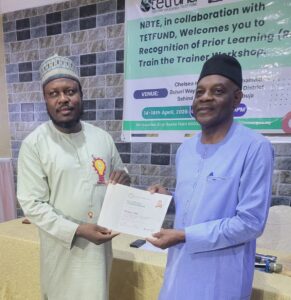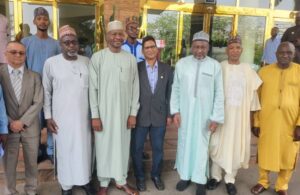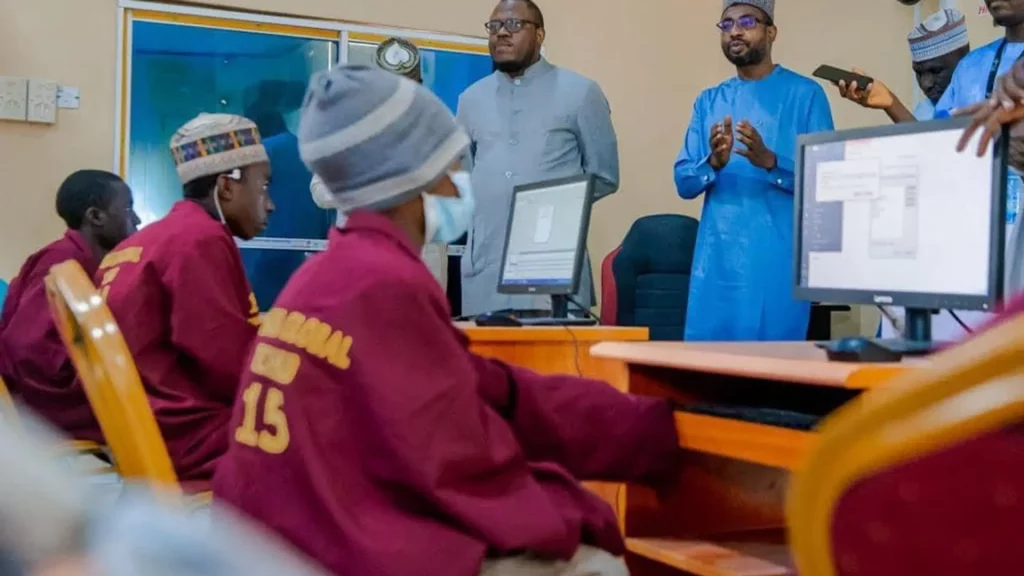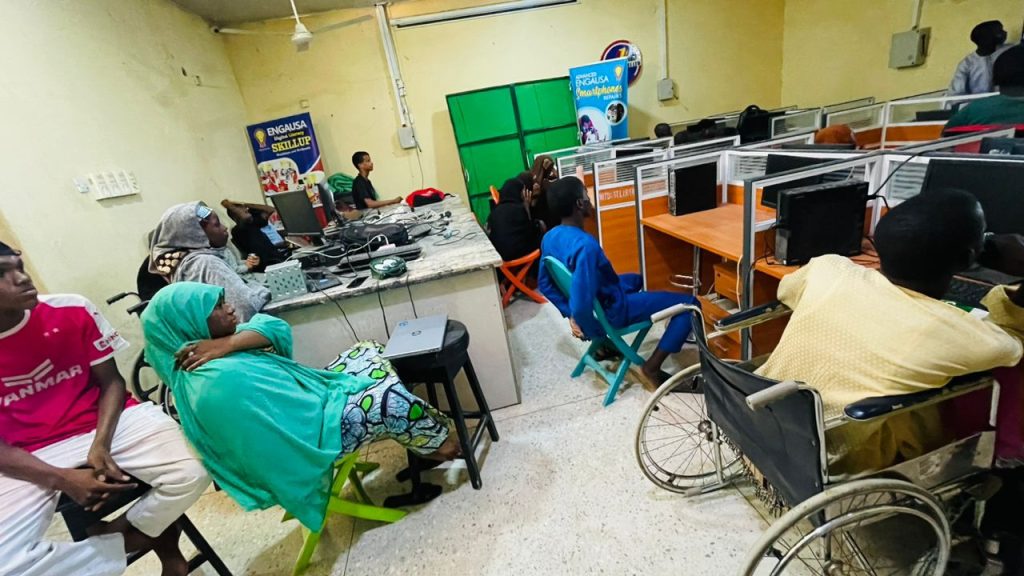By Engr. Mustapha Habu, QAA, MCPN, MNSE
CEO, Engausa Global Tech Hub
I had the unique privilege of participating in the first-ever Quality-Assured Recognition of Prior Learning (RPL) Train-the-Trainer (TTT) workshop organized by the National Board for Technical Education (NBTE) and funded by TETFund. This groundbreaking workshop opened my eyes to the transformative potential of RPL not only as a tool for certifying competencies but also as a catalyst for socio-economic development. Through intensive training and practical exercises, I gained deeper insight into how RPL can bridge the gap between informal skills and formal qualifications, empowering individuals and enhancing national productivity.

Following the successful completion of the TTT workshop, I was honored to be selected among the top participants who became facilitators in the RPL cascading workshops conducted across Nigeria’s six geopolitical zones. This opportunity allowed me to contribute directly to building the capacity of RPL assessors and practitioners nationwide, further strengthening the implementation of RPL as a vital pillar of Nigeria’s skills development framework.
This experience reinforced my belief that RPL holds immense promise for Nigeria, especially considering our large informal economy and diverse workforce. Below are five key socio-economic benefits of RPL that can accelerate Nigeria’s development:
1. Enhanced Workforce Productivity:
RPL allows individuals to earn formal recognition for skills they have acquired through work experience, which boosts their confidence, productivity, and ability to contribute more effectively to their industries.
2. Bridging Skills Gaps:
By formalizing the competencies of millions of skilled but uncertified workers, RPL helps fill critical skills shortages in key sectors, supporting industrial growth and national development agendas.
3. Economic Inclusion:
RPL provides a valuable pathway for marginalized groups—including artisans, informal workers, and school dropouts—to gain access to formal employment, entrepreneurship opportunities, and upward mobility.
4. Lifelong Learning Promotion:
The RPL framework encourages continuous professional development by recognizing incremental skills acquisition, which strengthens Nigeria’s culture of lifelong learning and adaptability in a fast-changing economy.
5. National Development:
By integrating informal sector workers into the formal economy through certification, RPL enhances Nigeria’s human capital, reduces poverty, and fosters sustainable economic growth.
 In conclusion, my participation in the RPL TTT workshop not only sharpened my technical skills but also deepened my commitment to advocating for RPL as a transformative strategy for Nigeria’s socio-economic advancement.
In conclusion, my participation in the RPL TTT workshop not only sharpened my technical skills but also deepened my commitment to advocating for RPL as a transformative strategy for Nigeria’s socio-economic advancement.
Take the first step toward transforming your future with practical, high-demand skills at Engausa.
For more information:
Visit our website: [www.EngausaHub.com.ng]
Contact:
📞 Phone: 07038224643 (WhatsApp and Telegram)
📧 Email: [email protected]

 In conclusion, my participation in the RPL TTT workshop not only sharpened my technical skills but also deepened my commitment to advocating for RPL as a transformative strategy for Nigeria’s socio-economic advancement.
In conclusion, my participation in the RPL TTT workshop not only sharpened my technical skills but also deepened my commitment to advocating for RPL as a transformative strategy for Nigeria’s socio-economic advancement.



